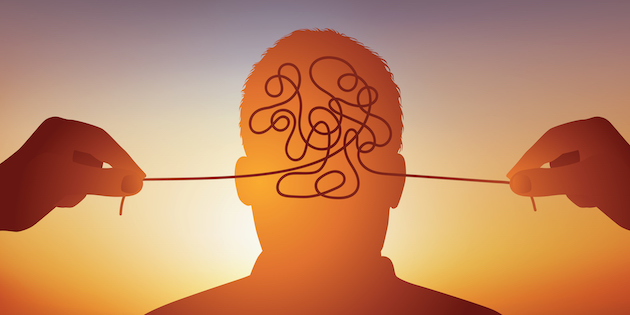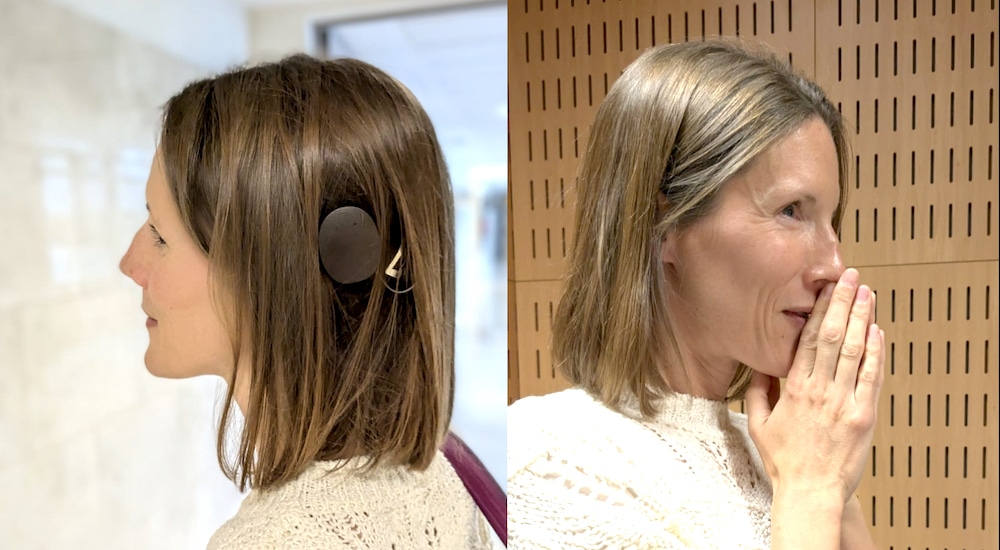Sound minds, sound hearing: The Interplay of Mental Health and Audiology
Audiology News UK's regular columnist Raúl García-Medina reminds audiologists that they need to be equipped to consider their patients' mental health.

Mental Health Awareness Week happens every year, and it is the biggest opportunity for the whole of the UK to come together to focus on achieving good mental health.
Since 2001, the week has aimed to tackle stigma and help people understand and prioritise their and others’ mental health.
Anxiety, loneliness, frustration, denial, isolation, embarrassment, depression,…
This year the week ran between May 15 and 21, and the main theme was anxiety. Last year, it was loneliness. It seems appropriate to point out that these and many other themes, such as frustration, denial, isolation, embarrassment, and even depression, are all feelings the audiologist has to be well equipped to deal with.
Yet in audiology, counselling skills feature low, or not at all, in educational settings. Incorporating counselling education in academic curriculums, and gaining the required practical skills to be able to build them into regular practice, allow audiologists to address the emotional and psychological needs of their patients, providing support and guidance during the adjustment process.
All the components of the clinician-patient relationship that facilitate personal growth and empower patients (and their families), while aiming to help individuals and/or families manage, adjust to, and cope with communication disorders and their treatments, is all part of a holistic approach that should be a ‘way of being’, not just a set of skills and techniques.
What is particular to audiology is that it is often as much about helping patients adjust to their treatments, as it is about helping them to adjust to the disorder itself. The latter seems to be where the profession fails the most and some of the barriers for promoting the effective integration of counselling initiatives into audiology practice are:
- Limited training. Audiologists typically receive minimal formal training in counselling during their education. Their curriculum often prioritises the technical aspects of audiology, such as diagnostics, hearing technology fittings, and rehabilitation techniques. As a result, they may not feel adequately prepared or confident in their counselling skills, leading to underutilisation of this aspect of their practice.
- Time constraints. Audiologists often face time constraints due to busy schedules and high patient loads. The limited time available for each appointment may make it challenging to allocate sufficient time for in-depth counselling. Audiologists may prioritise diagnostic assessments and treatment interventions, leaving little time for comprehensive counselling sessions.
- Lack of reimbursement. In some healthcare systems, counselling services provided by audiologists may not be adequately reimbursed. The focus on productivity and financial constraints may discourage audiologists from dedicating significant time to counselling, as it may not be financially viable or recognised as a chargeable service. This can lead to a reduced emphasis on counselling in audiology practice.
- Perception of role. Some audiologists may view their primary role as technical specialists rather than counsellors. They may believe that their expertise lies primarily in diagnosing and treating hearing and balance disorders rather than addressing the emotional and psychological aspects. This perception can lead to a diminished emphasis on counselling and a narrower focus on the audiological aspects of patient care.
- Lack of resources. Audiologists may face a lack of resources, including educational materials, counselling tools, and specialised training programmes. Without access to comprehensive resources, it can be challenging for audiologists to develop and enhance their counselling skills. Limited resources may also hinder the integration of counselling into audiology practice.
- Stigma surrounding mental health. In some cultures or communities, mental health and emotional well-being may still involve a stigma. Audiologists may encounter patients who are hesitant to discuss or seek support for the emotional impact of hearing loss. This societal context can make it more difficult for audiologists to initiate counselling conversations or prioritise emotional support.
Addressing these barriers is essential to the practice of our profession. Dr. Bec Bennett1 of the Ear Science Institute in Australia conducted a survey of 95 Audiology Australia members attending 2017 Chapter conferences in Perth, Adelaide and Hobart. She was interested in finding out how good or not audiologists were at detecting the signs and symptoms of mental wellbeing requirement, provision of mental well-being support, and referral for mental well-being intervention. She found that 55% of them did not know who to refer the patients to, 49% did not know when to make a referral, and 39% did not know how to make that referral. Dr. Bennett concluded: “Although 82% of audiologists had indicated that they had previously received some training in basic counselling techniques, an overwhelming 96% indicated that they would be interested in further developing their knowledge and skills associated with the provision of emotional and mental well-being in the audiology setting.”
To some extent I concur with the fact that there is not enough clarity regarding mental health referral pathways or referral guidelines. What is certainly clear is that the role of the audiologist in providing mental health support requires consideration.
The development of clinical guidelines which support how to evaluate, explore, discuss and address mental health during audiological consultations can enhance audiologists’ counselling skills, effectively address the emotional and psychological needs of individuals with hearing loss, and provide comprehensive care that improves overall patient well-being.
Furthermore, incorporating counselling skills into audiology practice is crucial for providing comprehensive and patient-centered care. By addressing the emotional and psychological impact of hearing loss, audiologists can support individuals in their journey toward better communication, improved quality of life, and increased overall outcomes. Counselling skills enhance the audiologist’s ability to educate, empower, and establish strong relationships with their patients, leading to improved treatment adherence and success. Ultimately, by recognising the importance of counselling, audiologists can contribute to a holistic and empathetic approach to hearing healthcare.
1. Bennett, Rebecca. (2020). AudiologyNOW. Talking about mental health in the audiology setting. 82. 21.
Source: Starkey




